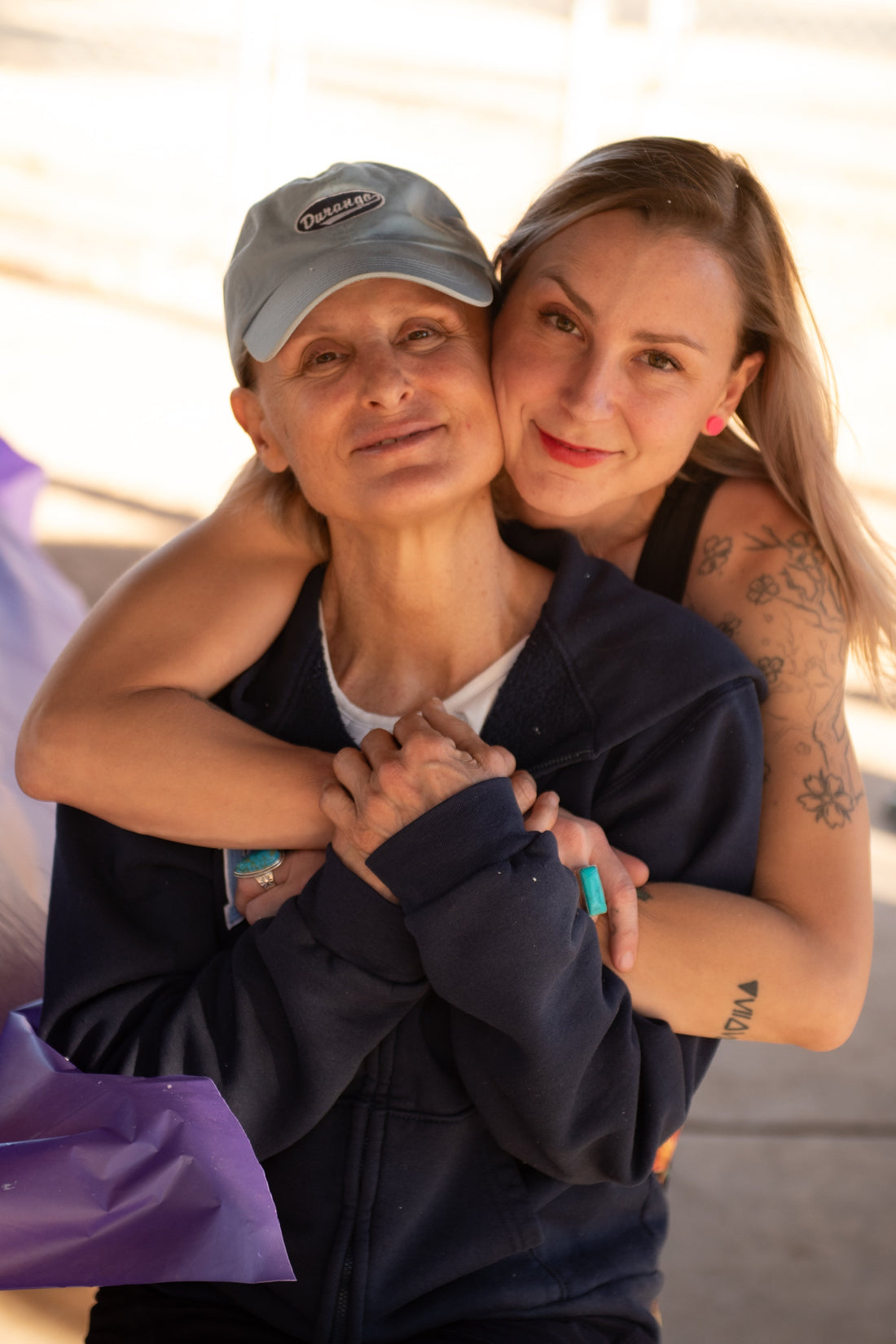
My Mom, My Heart: Facing Stage 4 Ovarian Cancer After Years of Silence
Share
When my mom was diagnosed with stage 3 ovarian cancer, it was like the bottom fell out of the world. She was just 58 — too young, too strong, too important to be handed a diagnosis like that. But the truth is, she had been sick for a long time. Doctors told her it was everything but cancer: menopause, valley fever, gallbladder issues. They even took her gallbladder out.
She was misdiagnosed for years.
And by the time someone finally looked closer, the cancer had already taken root and spread. Eventually, it progressed to stage 4 — the most advanced and most difficult stage to treat.
As if that wasn’t enough, my mom and I weren’t even speaking when it happened. We had been estranged. Life and pain and distance had come between us. So when I got the call that she had cancer — real cancer — not just symptoms dismissed or minimized by doctors, I felt like the air had been sucked out of my lungs.
But we came back together. And now I’m her caregiver.
What Stage 4 Ovarian Cancer Really Means
Stage 4 ovarian cancer means it’s spread beyond the pelvis and abdomen — to places like the lungs, liver, or lymph nodes. At this stage, the focus often shifts from “beating” the cancer to buying time, managing pain, and holding onto the life that’s still here.
It’s not fair. It’s not right. But it’s real. And I’m living it beside her.
Becoming a Caregiver to the Woman Who Gave Me Life
Now, I’m the one holding her hand at appointments. Managing meds. Watching the woman who raised me slowly become the one I need to protect. There is no blueprint for this kind of grief, especially when it’s layered over years of distance and unspoken hurt.
But love finds its way back.
Even in cancer.
Even in chaos.
Even in the quiet moments when everything aches.
She is still my mom. Still funny. Still sharp. Still stubborn as hell. And I love her with my whole heart.
Why This Hurts So Much
This isn’t just about cancer. It’s about what was stolen:
- Time. We could’ve had more if someone had just looked deeper.
- Connection. We lost years to estrangement, and now we’re playing catch-up in the most fragile time of her life.
- Trust. In doctors, in the system, in the idea that someone will listen when a woman says, “Something’s wrong.”
Stage 4 ovarian cancer is so cruel because it creeps in quietly. The signs mimic normal things — menopause, indigestion, fatigue. And too often, by the time anyone pays attention, it’s too late.
But There Is Still Love
I am grateful for every moment I get with her now. Every story, every laugh, every day that we’re together. I hate what cancer has done, but I cherish what it’s given back: a second chance to be by her side.
This is not the ending either of us wanted. But it is a time full of meaning, memory, and love.
How You Can Help
This journey is overwhelming — emotionally, physically, and financially. If you feel moved to support us, please visit our GoFundMe:
Resources for Others on This Journey:
- Ovarian Cancer Research Alliance (OCRA) – Education, advocacy, and support.
- CancerCare – Offers free support services for patients and caregivers.
- The Clearity Foundation – Personalized treatment support and counseling for ovarian cancer patients.
- National Ovarian Cancer Coalition – Resources, education, and community connections.
To Anyone Going Through This
If you’re walking this road too — as a daughter, as a caregiver, as someone watching the person you love suffer — I see you. It’s hard. It’s heartbreaking. And it’s holy in its own strange way.
Hold your loved one close. Say what you need to say. Let love speak louder than fear.
Because in the end, even in the shadow of cancer, love is what endures.
